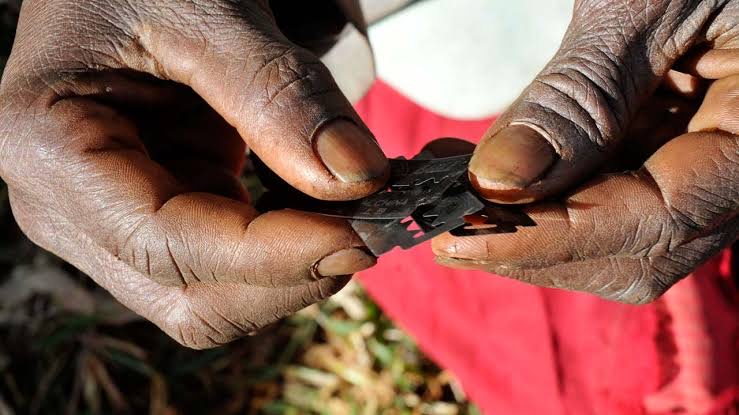By Justina Auta
Women Against Violence and Exploitation (WAVE) Foundation, a Non-Government Organisation (NGO), has called for the establishment of community centres to help survivors of Female Genital Mutilation (FGM) and reduce prevalence of the practice.
The Founder of the foundation, Mrs Lola Ibrahim, made the call in an interview with the News Agency of Nigeria (NAN) on Monday in Abuja.
Ibrahim, who described FGM as a harmful traditional practice affecting women and girls, said that establishing centres, especially in remote areas, would create awareness about the negative effects of the act.
FGM comprises all procedures that involve partial or total removal of the external female genitalia, or other injury to the female genital
organs for non-medical reasons.
The practice has no health benefits for girls and women and can cause severe bleeding and problems urinating, and later cysts, infections, as well as complications during childbirth and increased risk of newborn deaths.
The practice of FGM is recognised internationally as a violation of the human rights of girls and women, reflects inequality between the sexes and constitutes discrimination against girls and women.
It is carried out by traditional practitioners on minors and in some instances, involve healthcare providers due to the belief that the
procedure is safer when medicalised.
However, World Health Organisation (WHO) strongly urges healthcare providers not to perform FGM and has developed a global strategy and specific materials to support healthcare providers against medicalisation of the act.
The NGO boss, therefore, said “when established, community-based counselling centres will provide safe space for survivors, address their mental, physical, and medical needs while combating stigma.”
She explained that the foundation had carried out advocacies in communities in the Federal Capital Territory (FCT) and in Osun State to educate people on existing laws prohibiting the practice.
Ibrahim said that WAVE Foundation, in partnership with the UN Population Fund (UNFPA) and the Osun Government, trained 40 girls in digital skills, out of which, three were given laptops under a five-year programme on FGM.
She added that through the programme, a network was initiated with American Spaces to address survivors’ mental, physical, and medical needs.
She explained that “throughout these impactful endeavours, the foundation’s progress was propelled by the unwavering generosity of supporters.
“This enabled us to introduce initiatives such as training youth advocates, organising educational workshops, supporting survivors, and
advocating stronger laws and enforcement to end FGM in Nigeria.”
She, however, listed challenges of cultural resistance, limited resources, poor access to remote areas, stigma and fear as affecting the eradication of the practice in the country.
“Deep-rooted cultural beliefs and practices pose resistance to efforts aimed at eliminating FGM, requiring culturally sensitive approaches.
“In spite of media campaigns, there are populations especially in rural areas that are unaware of the dangers of FGM or the law prohibiting the practice, necessitating more targeted awareness initiatives.
“Also, inconsistent enforcement of existing laws against FGM may hinder the foundation’s efforts in achieving legal and policy changes,” she said.
The founder called for more community engagement, funding, skilled manpower development, monitoring and evaluation, legal reforms as strategies to curb FGM practice in Nigeria.
She said “we need to collaborate with legal entities and advocacy groups to strengthen enforcement of laws against FGM, ensuring a more robust legal framework.
“By addressing the shortage of skilled manpower and implementing the proposed strategies, we can eradicate FGM and promote the well-being of affected communities.”(NAN)
